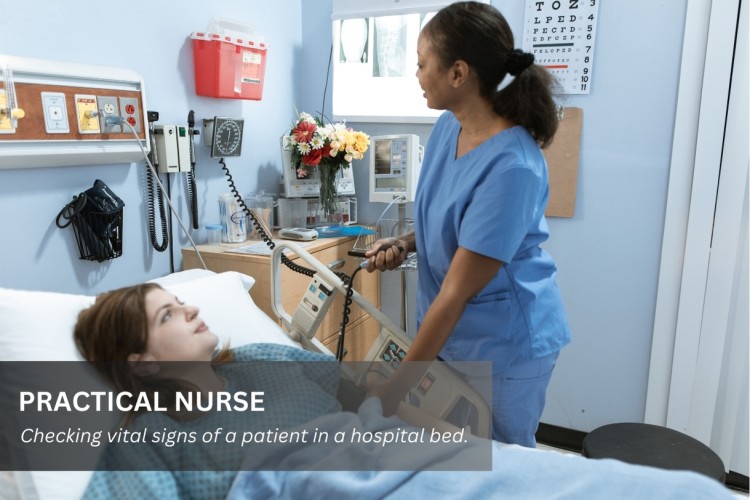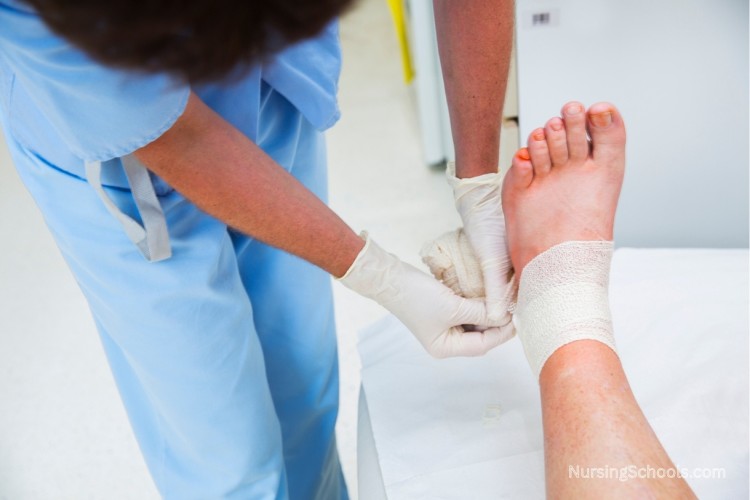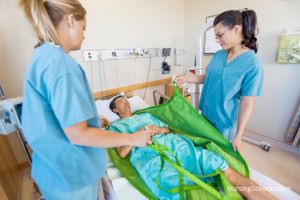Licensed Practical Nurse (LPN)
Nursing Career Guide

Overview
What Is a Licensed Practical Nurse (LPN)?
A Licensed Practical Nurse (LPN), also known as a Licensed Vocational Nurse (LVN) depending on the state, is a healthcare professional trained to provide basic nursing care under the supervision of a Registered Nurse (RN), Advanced Practice Registered Nurse (APRN), or physician. They are essential members of the healthcare team, assisting with daily living activities, monitoring vital signs, administering medications, and providing routine bedside care.
Licensed Practical Nurses play a vital role in ensuring patient comfort and continuity of care across a wide range of healthcare settings. While they do not typically handle complex clinical decisions, their hands-on support is critical to patient recovery and quality of life. Many Practical Nurses also help with patient education, medical charting, and communication between patients and the broader healthcare team.
In terms of career progression, the LPN role fits between the Nursing Assistant (CNA) and the Registered Nurse (RN). They often work alongside Nursing Assistants and other Practical Nurses and may share similar responsibilities depending on the state. This role offers a strong foundation for those looking to advance their nursing career. Moving from an CNA to a LPN, and eventually to an RN, is a common path supported by bridge programs and additional education.
Education
How To Become a Licensed Practical Nurse (LPN)
To become a Licensed Practical Nurse, you need to complete a state-approved LPN program, which typically lasts about one year. These programs cover essential nursing skills, patient care, and clinical rotations. Upon completion, graduates are eligible to take the NCLEX-PN exam to obtain licensure. The relatively short training period makes practical nursing an appealing option for those who want to quickly begin working in healthcare.
Follow these steps to become a Licensed Practical Nurse:
- Complete a Practical Nursing Program. Enroll in a state-approved practical nursing program that typically lasts one year. Such programs are offered at community colleges, technical schools, and some hospitals.
- Gain Clinical Experience. As part of your program, you will complete supervised clinical rotations to gain hands-on experience in real healthcare settings.
- Pass the NCLEX-PN Exam. After completing your program, you must pass the National Council Licensure Examination for Practical Nurses (NCLEX-PN) to become licensed.
- Obtain State Licensure. Apply and pay the fee for licensure in the state where you plan to work. Each state has its own requirements for licensure, which may include a background check and additional documentation.
- Maintain State Licensure. Most states require the LPN to renew their license every two years, which may involve continuing education credits and a minimum number of work hours to stay current with nursing standards.
How long does it take to become a Practical Nurse? On average, it takes about one to two years to complete a practical nursing program, depending on whether the student attends full-time or part-time. After completing the program, students must pass the NCLEX-PN, which can take a few additional months of preparation. Overall, most Practical Nurses enter the workforce within one and a half to two years.

Average Salary
How Much Does a Licensed Practical Nurse Make?
Licensed Practical Nurses earn a competitive salary, particularly given the relatively short time required for education and training. On average, a Practical Nurse can expect to earn between $45,000 and $75,000 annually, depending on experience and workplace setting. Practical Nurses working in high-demand areas or specialized roles may earn more.
Average annual salary for a Licensed Practical Nurse:
- Entry-level: $45,000 - $55,000 per year.
- Mid-career: $55,000 - $65,000 per year.
- Experienced: $65,000 - $75,000 per year.
The latest salary report from the U.S. Bureau of Labor Statistics (BLS) shows that the median annual wage for Licensed Practical Nurses is $59,030. The average hourly wage is $28.38. Wages range from $20.40 per hour for the lowest 10% of earners to $35.59 per hour for the highest 10%. This translates to an annual salary range of approximately $42,000 to $74,000 for full-time work. Those working in outpatient care centers or government roles tend to earn more, while nursing homes and long-term residential care settings may offer lower average pay.
Practical Nurses have numerous opportunities for career and earnings growth. As an entry-level nursing role, the LPN gains important hands-on healthcare experience while earning a salary. After gaining experience, many Practical Nurses choose to advance their careers by becoming Registered Nurses. LPN to RN bridge programs can help those who want to earn RN credentials while continuing to work.
Job Duties
What Does a Licensed Practical Nurse Do?
Licensed Practical Nurses most often work at nursing homes, hospitals, physician offices, and home healthcare services. Practical nursing job duties in a hospital vary by department, shift, nursing care philosophy, and hospital-specific procedures. New practical nurses will undergo a nursing orientation period designed to help them learn and understand their daily routines. A few of the well-known hospital departments where LPN and other nurses work are the Emergency Room (ER), Intensive Care Unit (ICU), Cardiac Care Unit (CCU), Obstetrics & Gynecology, Operating Room (OR), and Outpatient.
The most common job duties of a Practical Nurse:
- Monitoring Vital Signs. Check patients' blood pressure, pulse, and temperature to ensure they are stable and report any concerning changes to an RN or doctor.
- Administering Medications. Under the supervision of an RN, the LPN can give patients prescribed medications and document the administration accurately.
- Assisting with Daily Activities. Help patients with essential tasks such as bathing, dressing, and eating, particularly in long-term care or home health settings.
- Wound Care. Clean and dress wounds to prevent infections and promote healing under an RN's direction.
- Additional Duties. Insert catheters, monitor catheters, give enemas and injections, collect samples, and perform laboratory tests.
Practical nurses often stand for long periods of time. A 40-hour work week is typical, however, shifts at facilities that require 24-hour care may be split into morning, day, and night, with the frequent need to fill weekends and holidays. Medical environment hazards include the presence of disease, the use of chemicals, injections, possible radiation exposure, and injury if providing direct patient care to patients who are confused or uncooperative. During times of patient overload at a hospital, for example, workload-related stress can also be present for a Practical Nurse.

Essential Skills
What Skills Does a Licensed Practical Nurse Need?
Licensed Practical Nurses must be detail-oriented and comfortable working under the supervision of more experienced RN and physicians. They are responsible for administering medications, monitoring patient health, and maintaining accurate records. Here are some of the skills a Practical Nurse needs to succeed:
- Clinical accuracy. Follow proper procedures when administering treatments, injections, or medications.
- Patient communication. Explain medications, check symptoms, and provide clear instructions to patients and families.
- Flexibility. Adapt to changing patient needs, schedules, and assignments across different hospital departments.
- Record keeping. Maintain accurate and timely documentation of vital signs, medications, and patient observations.
- Teamwork. Collaborate respectfully with RN, CNA, and physicians to ensure consistent, coordinated patient care.
- Ethical judgment. Respect patient privacy, follow healthcare regulations, and report concerns when necessary.
This role can be demanding, especially in settings with high patient turnover or limited staff support. Practical Nurses often work nights, weekends, and holidays to provide around-the-clock care. Physical stamina and stress resilience are key to staying effective in this environment.
Work Environment
Where Does a Licensed Practical Nurse Work?
Licensed Practical Nurses can work in a variety of healthcare settings depending on their preferences and available opportunities.
The most common workplaces for a Practical Nurse include:
- Hospitals. LPN assist RN and doctors in acute care settings, providing basic patient care, administering medications, and monitoring patient conditions. They often work in departments like emergency rooms or medical-surgical units.
- Nursing Homes. In long-term care facilities, they help care for elderly or disabled patients who require ongoing care. They assist with daily living activities, manage medications, and monitor patient well-being over extended periods.
- Home Health Care. Some LPN work in patients' homes, offering care for individuals who need medical support but prefer to remain in their home environment. This role involves providing personal care, medication management, and health monitoring.
- Outpatient Clinics. Practical Nurses in clinics may work alongside doctors and nurses to assist with routine procedures, vaccinations, and patient education. This environment often offers a predictable work schedule and more regular hours than hospital settings.
Practical Nurses are versatile professionals who can adapt to different work environments depending on patient needs. Their ability to provide essential care in various settings makes them a valuable asset to any healthcare team.
Last updated: August 23, 2025
References:
- Practical and Vocational Nurses. Bureau of Labor Statistics, U.S. Department of Labor. Occupational Outlook Handbook. Retrieved August 23, 2025.
- NCLEX Nurse Licensure Exam. National Council of State Boards of Nursing (NCSBN). Retrieved August 23, 2025.
- Practical Nurse. New Jersey Board of Nursing, Licensing and Renewals. Retrieved August 23, 2025.
- Practical Nurse Job Description: Top Duties and Qualifications. Indeed for Employers. Retrieved August 23, 2025.
- Practical Nurse Salary in the United States. Salary.com. Retrieved August 23, 2025.
- Career Profile: Practical Nursing. Cambridge College of Healthcare and Technology. Retrieved August 23, 2025.
- What are some careers in health science?. CareerOneStop, US Department of Labor, Employment and Training Administration. Retrieved August 23, 2025.
- Practical Nurse. New York State Education Department, Career Profile. Retrieved August 23, 2025.
- Practical Nursing – A Typical Day. Sumner College, Career Profile. Retrieved August 23, 2025.
- Nursing Careers: Getting Started. American Nurses Association, Career Profile. Retrieved August 23, 2025.


